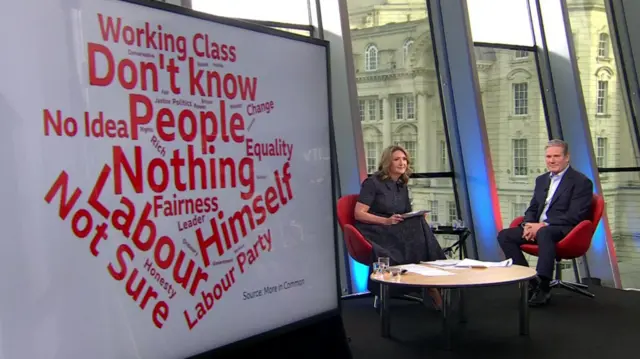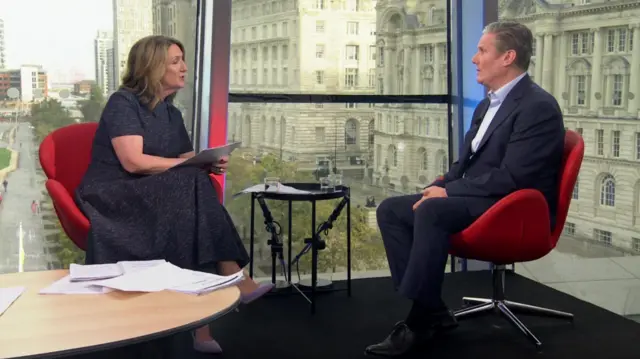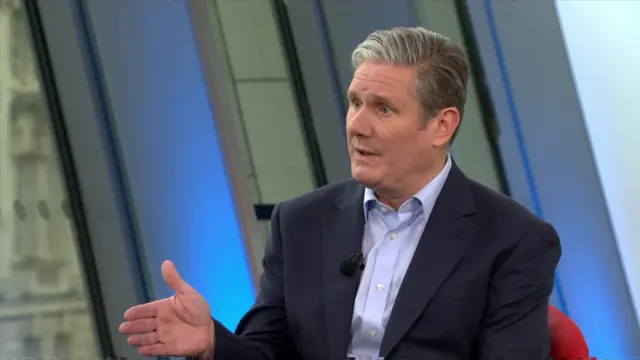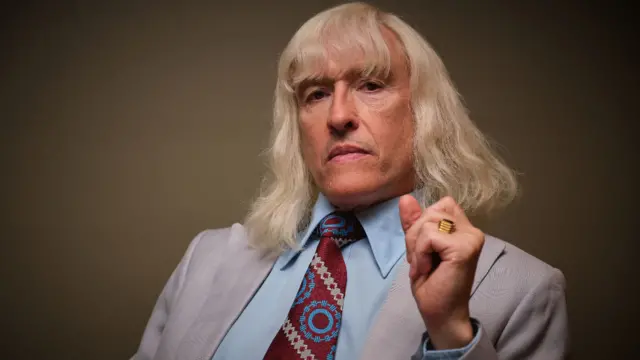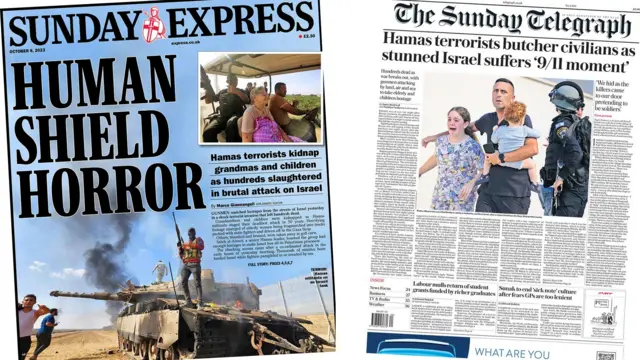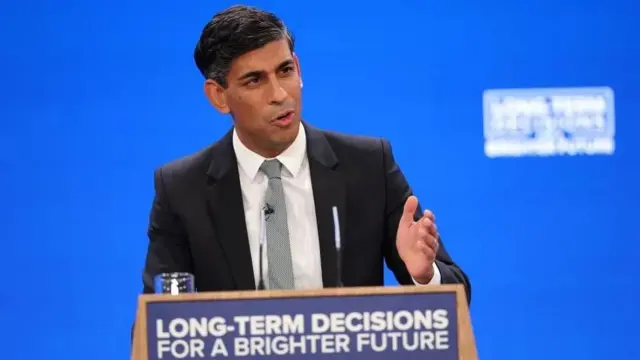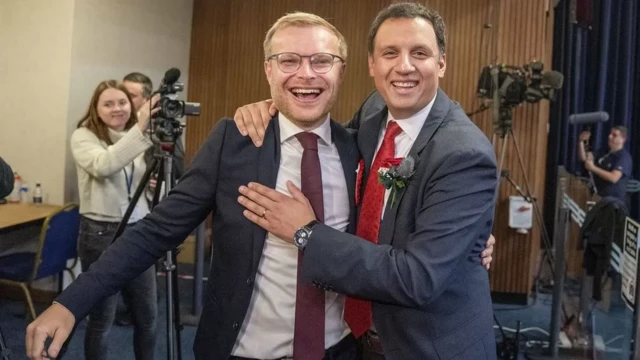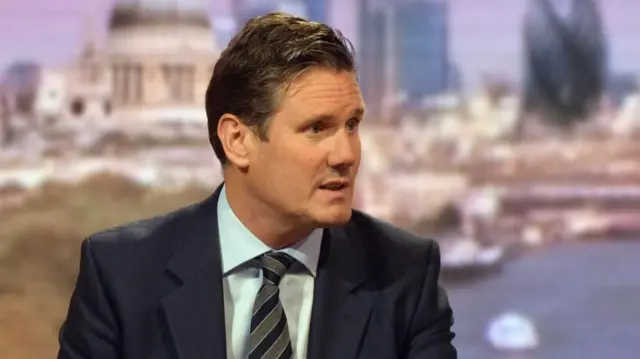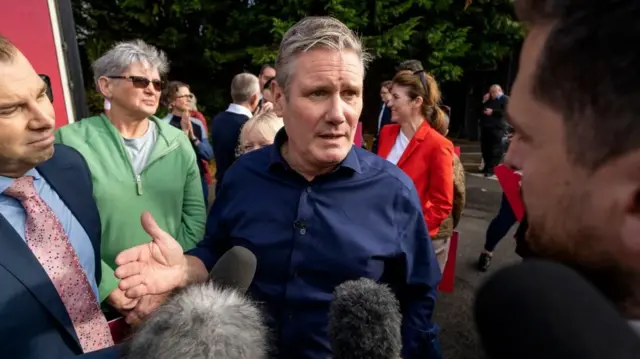
A big part of Labour's plan is contingent on growthpublished at 09:38 BST 8 October 2023
 Henry Zeffman
Henry Zeffman
Chief political correspondent
Sir Keir Starmer and Rachel Reeves, his shadow chancellor, have put fiscal responsibility at the heart of their attempt to win power.
They believe that crucial swing voters need reassurance that a Labour government would not be profligate before they will be willing to entertain voting for them.
But one consequence of their tight fiscal rules is that Labour are not promising significant increases in public spending. Instead, they say they want to boost economic growth and use the proceeds for public services.
Starmer says that this growth can be unlocked through changes to planning rules and other reforms. But that leaves open the crucial question of how quickly these changes would fuel growth.
Asked that question by Victoria Derbyshire, Starmer said the growth would come “very quickly” but resisted a more specific timeframe.
He said that changes to promote growth could happen within months.
The exchange was a reminder that a big part of Starmer’s programme is contingent on economic growth, something that all governments want but often find hard to achieve.
